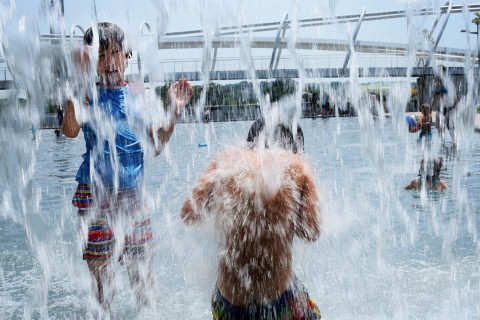WASHINGTON — The D.C. area is going through its first big heat wave of the summer, and the effects are being felt and seen at hospital emergency rooms.
Dr. Todd Templeman, an emergency physician at Suburban Hospital, says his ER is already treating patients with not only heat exhaustion but heat stroke, which is far more serious and can be life-threatening.
Staying out in the heat and humidity too long with improper hydration can lead to dizziness and cause a headache, cramping or nausea. Those are the first signs of heat exhaustion, along with heavy sweating and a faster-than-normal pulse.
Templeman says there are things you can try first to treat these symptoms on your own.
“Get into a cool, air-conditioned area, get plenty of cold fluids, get in the shade, take off any dark-colored clothing,” he said.
But if you are not feeling better within a few minutes and the symptoms seem worse, that heat exhaustion may have progressed to heat stroke — a condition that demands immediate medical attention.
One big indication of trouble: With heat exhaustion, you don’t tend to have an elevated body temperature, but with heat stroke it typically soars to over 103 or 104 degrees.
Those most at risk are the very young and the very old. Templeman says they need to be monitored closely, emphasizing the importance of keeping watch on the elderly when the worst of a D.C. summer hits.
He says they can get overheated much more easily than the rest of us, and the diminished thirst of old age can lead to unintended dehydration.







